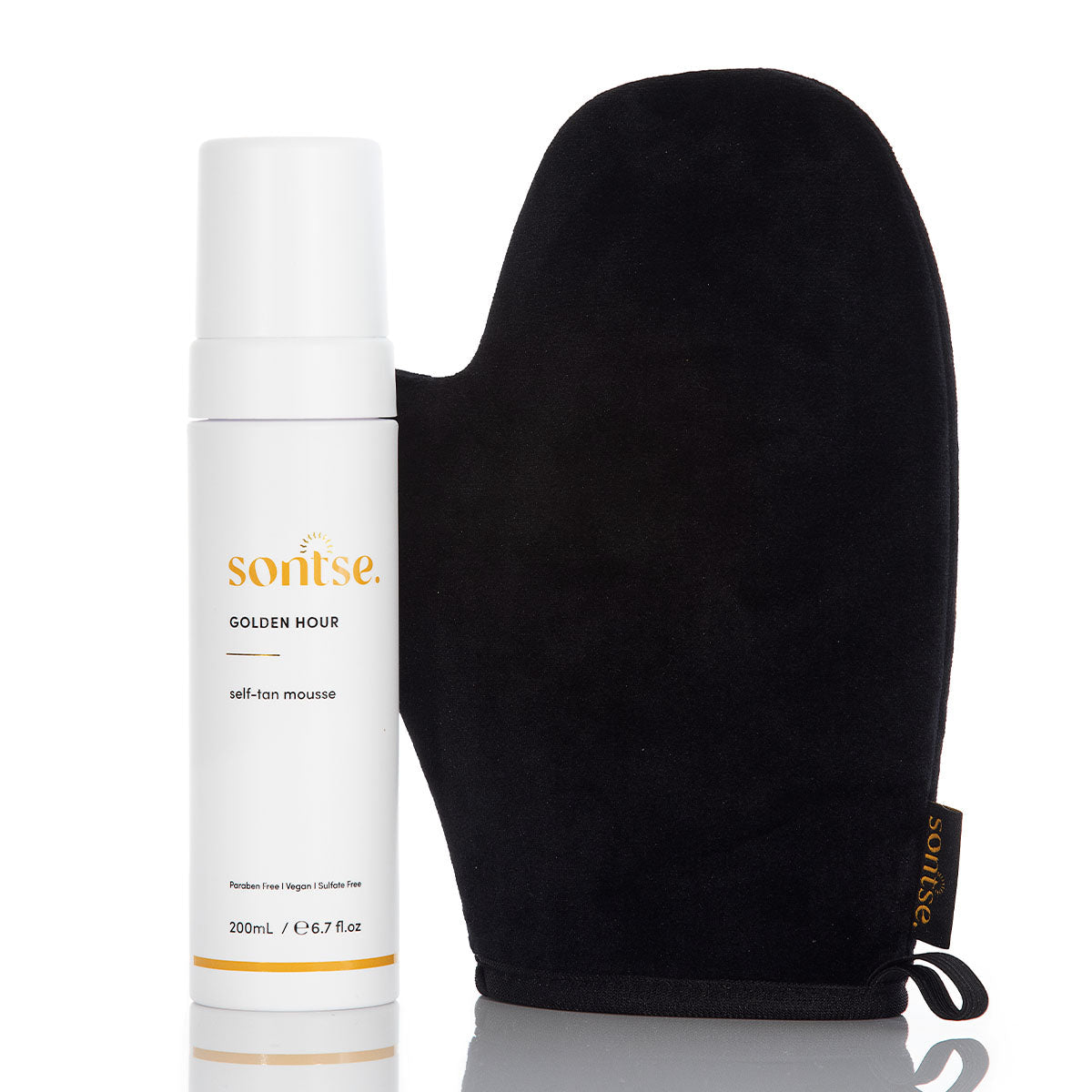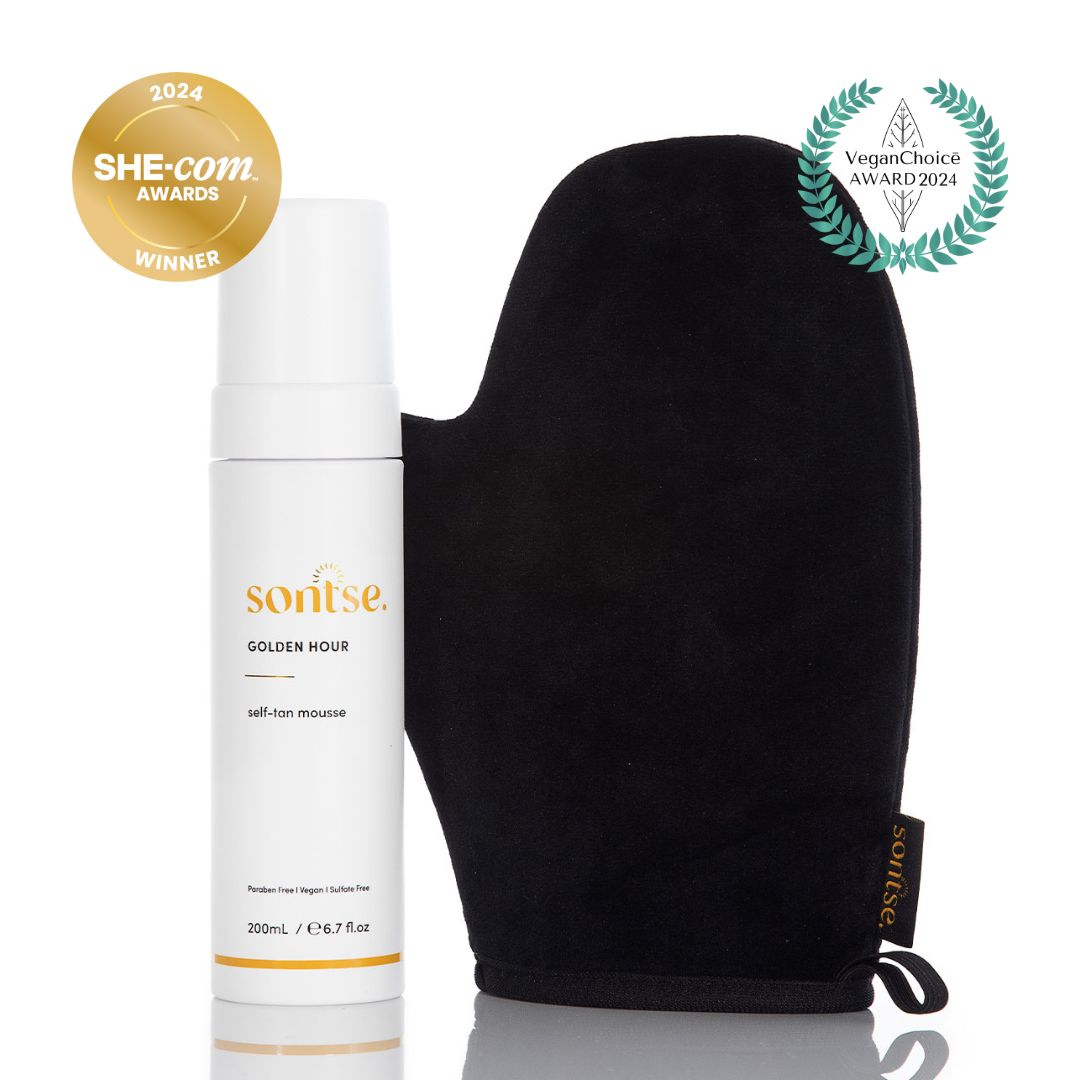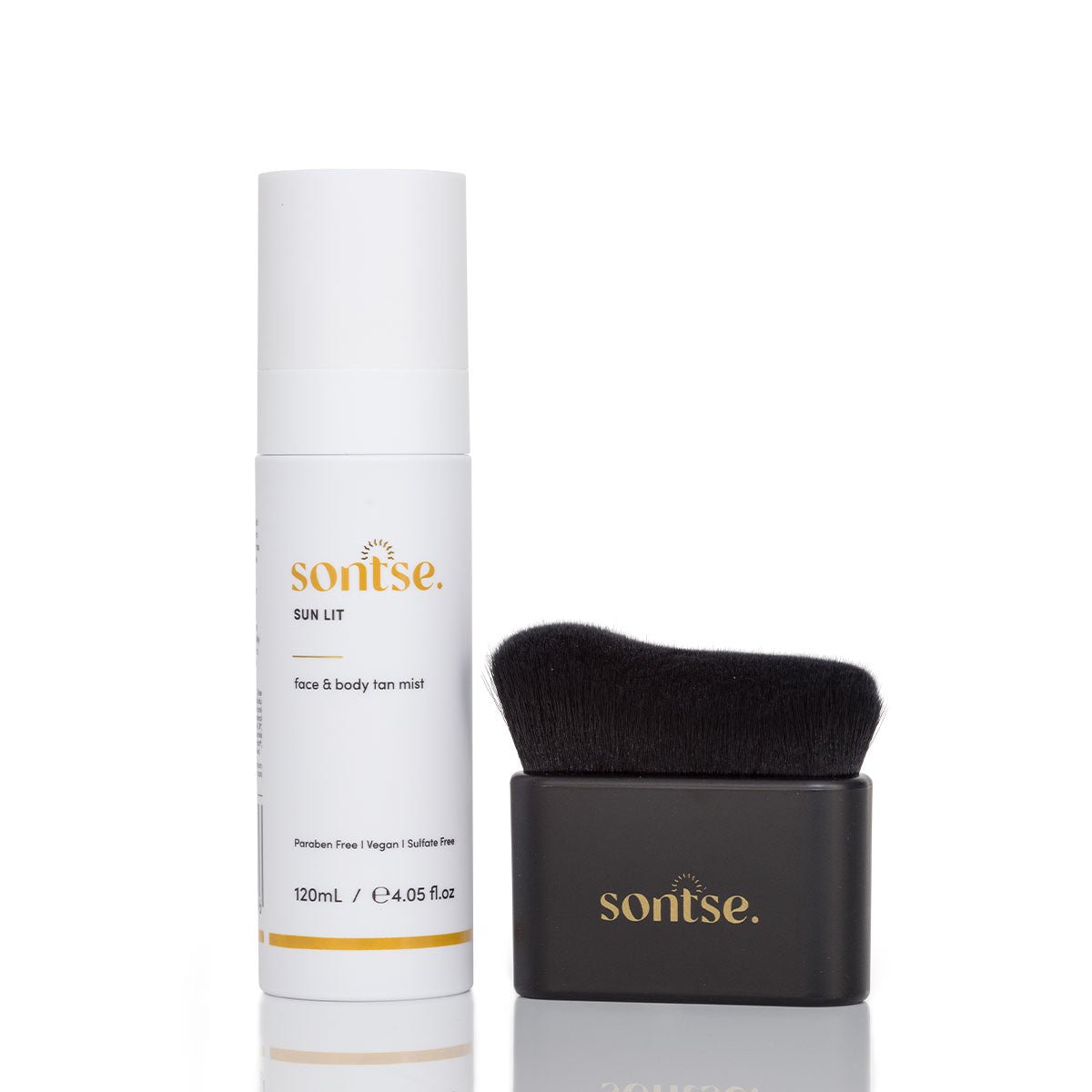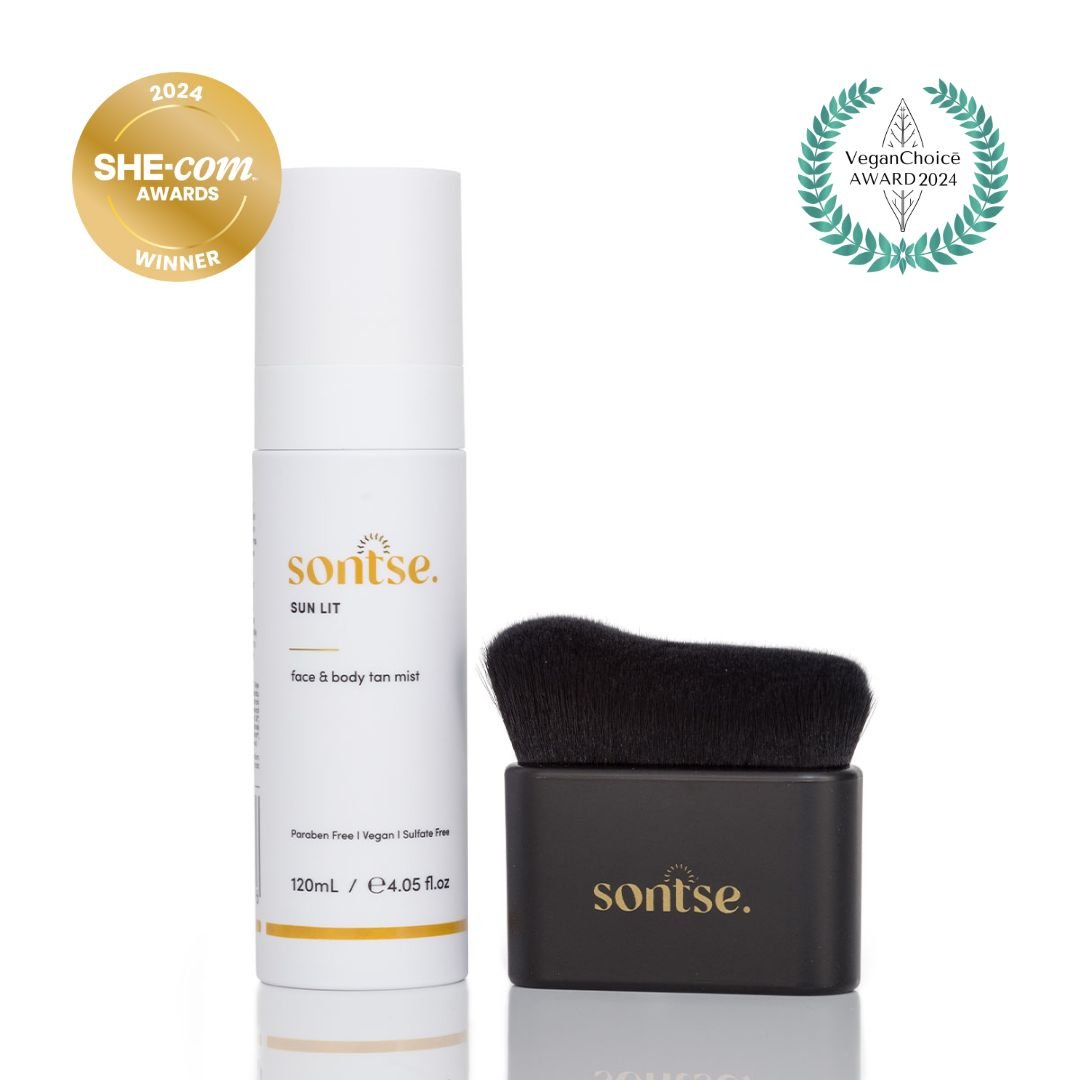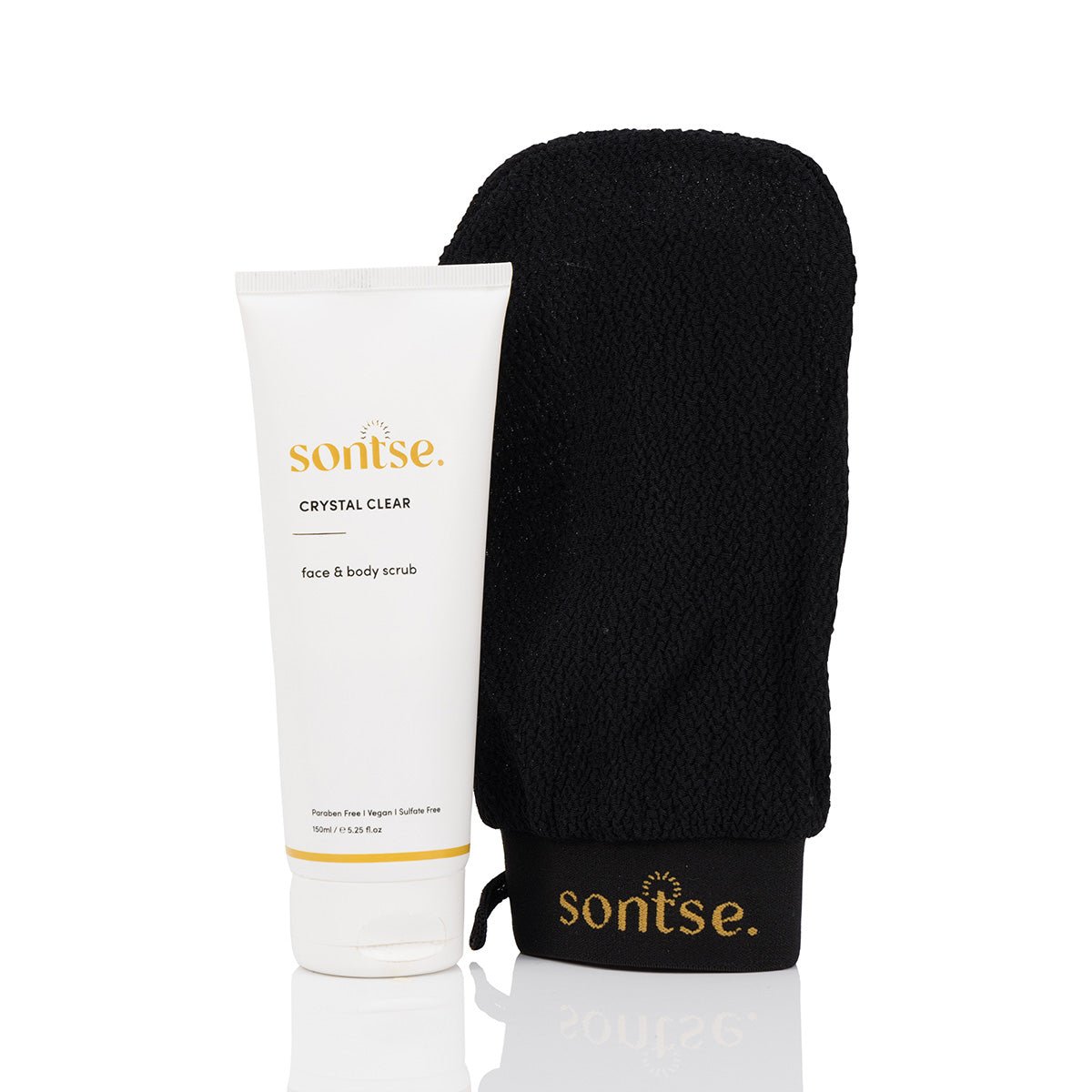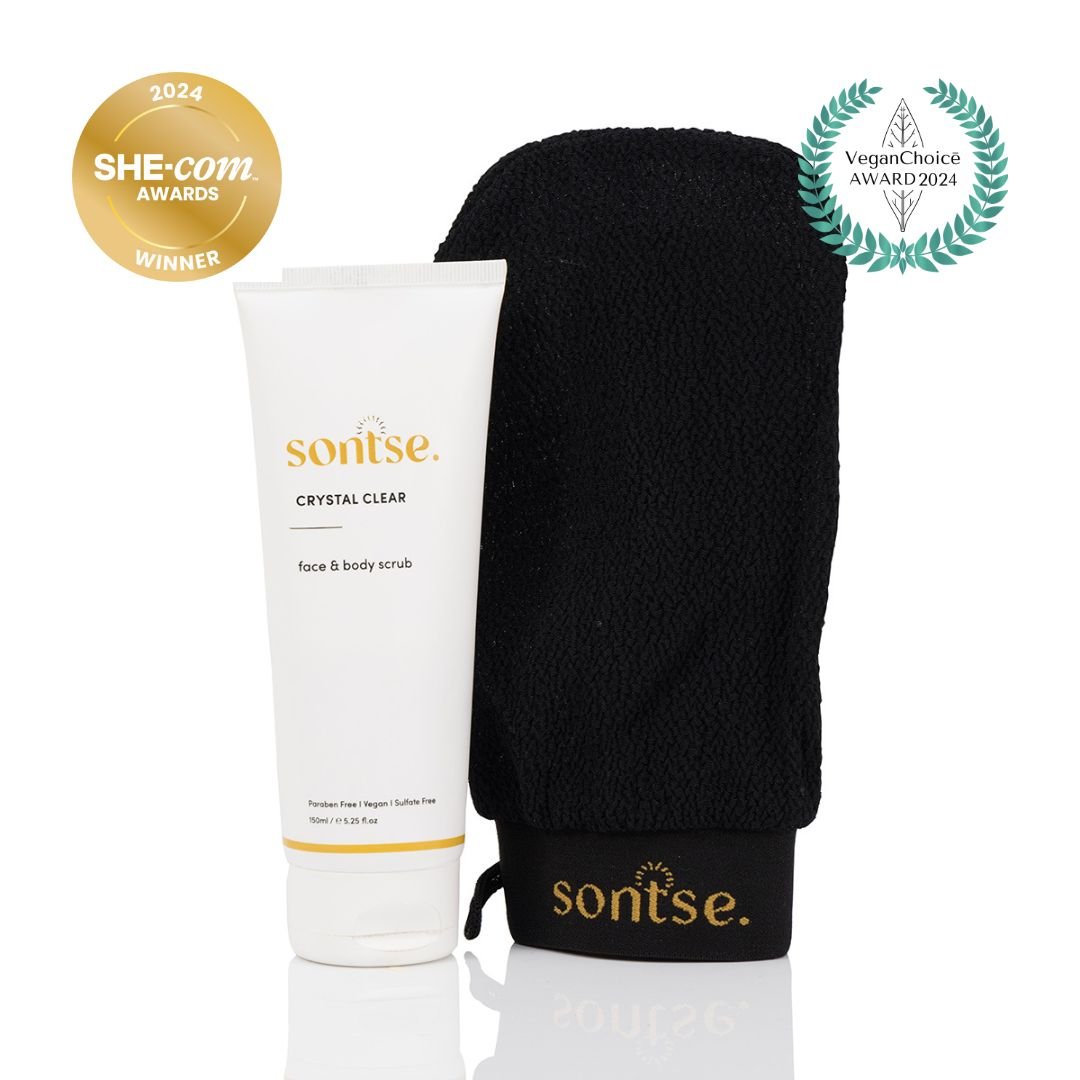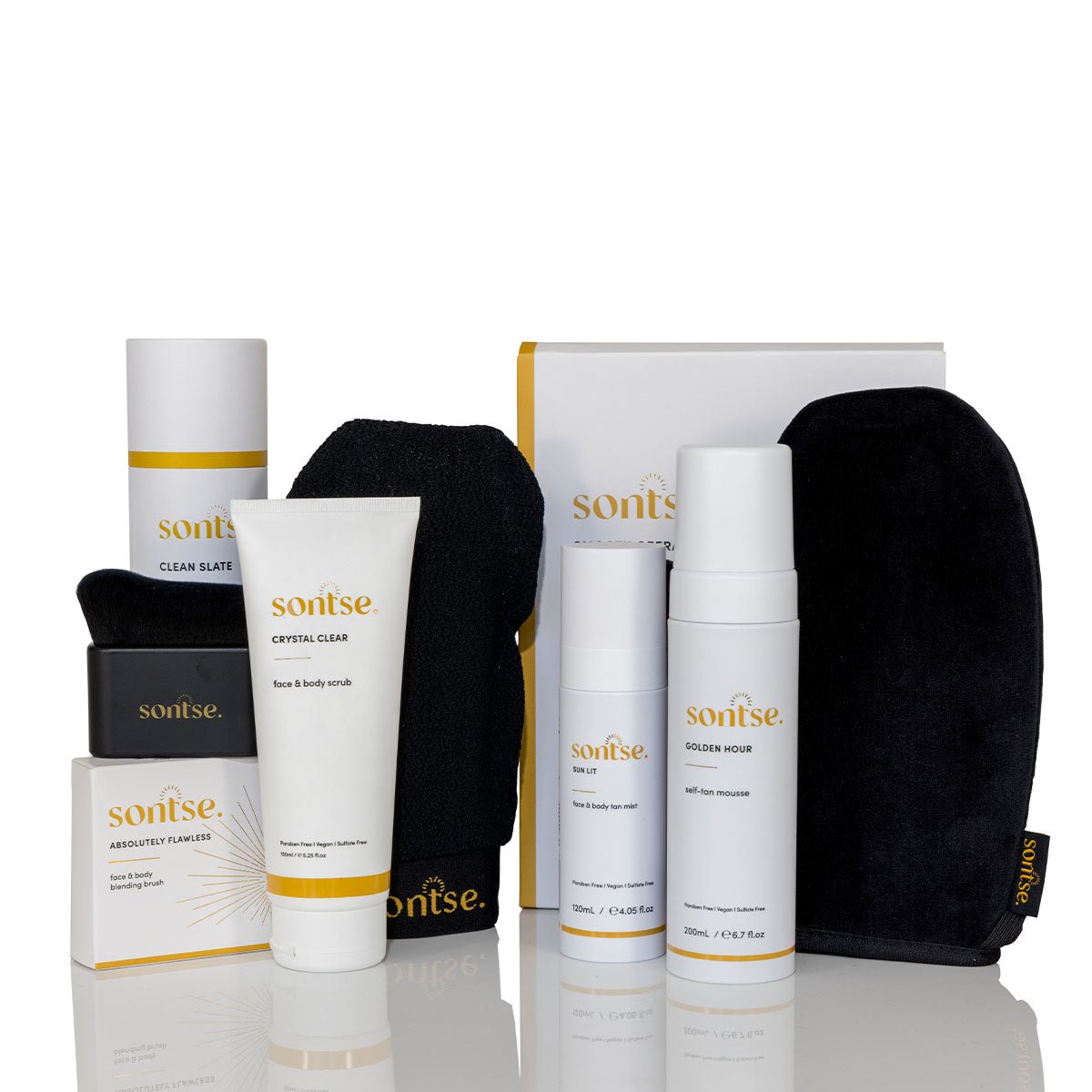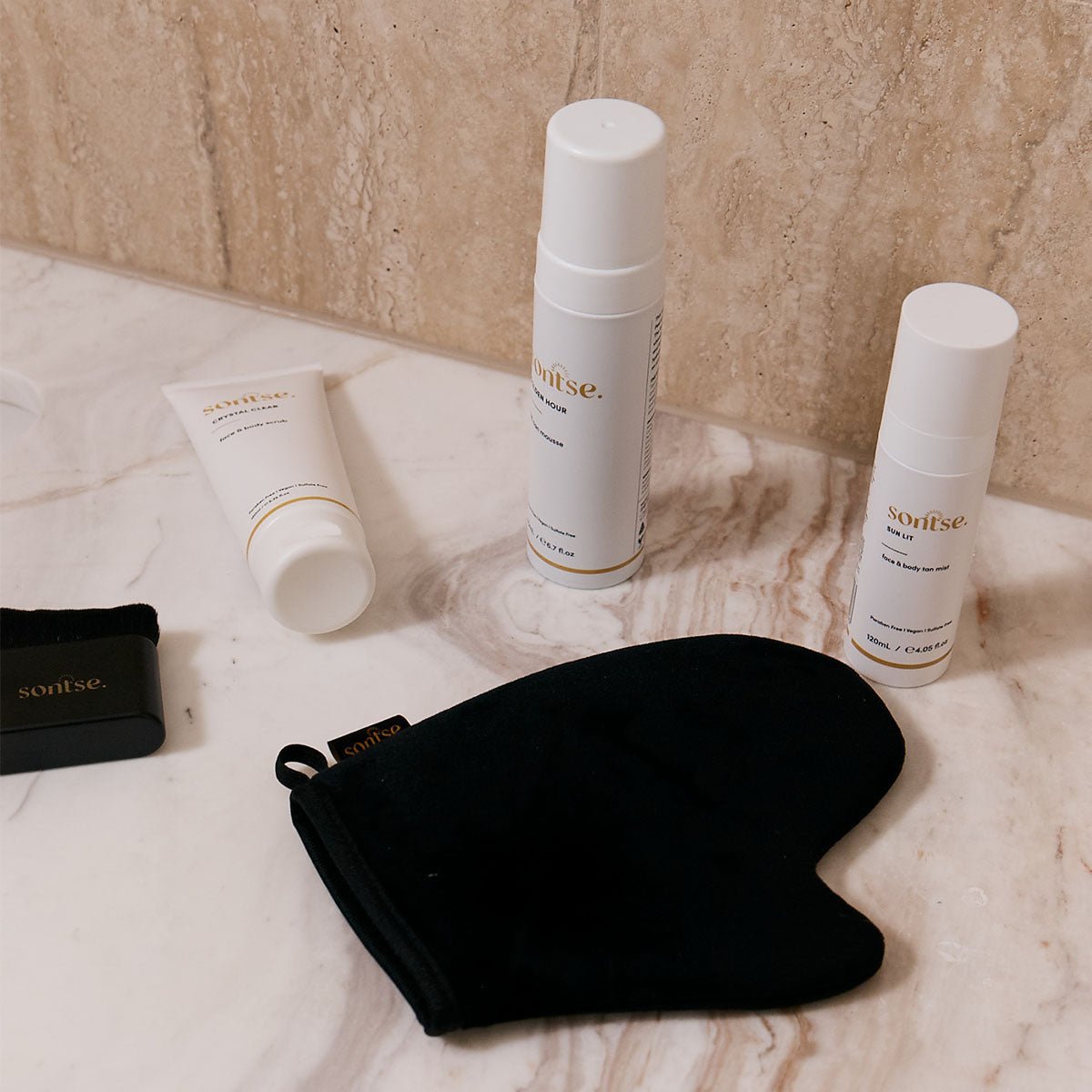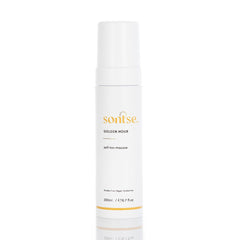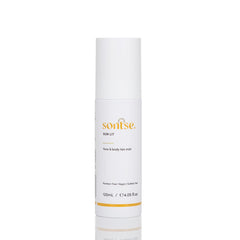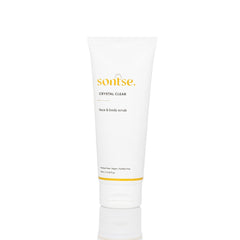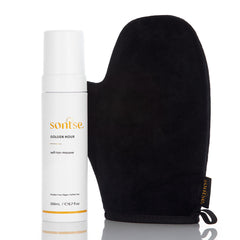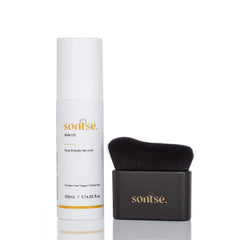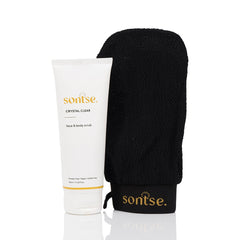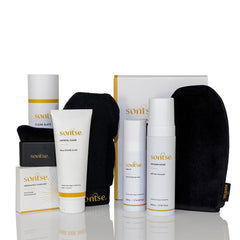So you’ve heard of using coconut oil for sun tanning (and cringed at the harmful trend that saw an entire generation basically cooking their skin under the sun), but is coconut oil really the evil villain some make it out to be? Quite the opposite! Renowned for its natural properties, coconut oil is a powerhouse of goodness that can support, enhance and nourish your skin (when used properly and in conjunction with proper sun safety).
So, discover how we, as a sun-safe movement, are revolutionising the use of coconut oil for achieving a healthy (UV-free) glow.
1. First things first, what is coconut oil, and where does it come from?
Coconut oil is a natural ingredient with a very unique composition.
According to Lin et al. (2018),
‘Coconut is composed of many FFAs including lauric acid (49%), myristic acid (18%), palmitic acid (8%), caprylic acid (8%), capric acid (7%), oleic acid (6%), linoleic acid (2%), and stearic acid (2%).’
‘Extracted from the kernel or meat of mature coconuts harvested from the coconut palm (Cocos nucifera)’ (Lin et al., 2018), it really is a natural wonder unearthed from nature itself.
2. The beauty benefits of coconut oil
Asking yourself, ‘What are the benefits of coconut oil on the skin?’, in order to answer this question, we must understand the molecular makeup of coconut oil and how it is a superior oil for cosmetic use compared to other natural and less natural oils.
According to Kappally et al. (2015),
‘Coconut oil differed from other fats and oils in that it was found to be composed predominantly medium chain triglycerides.’
Broken down further, this looks like:
Saturated fats:
- Lauric acid (45% to 52%),
- Myristic acid (16% to 21%),
- Palmitic acid (7% to 10%),
- Caprylic acid (5% to 10%),
- Capric acid ( 4% to 8%),
- Stearic acid (2% to 4%),
- Caproic acid (0.5% to 1%)
- Palmitoleic acid (in traces)
Unsaturated fats:
- Oleic acid (5% to 8%),
- Linoleic acid (1% to 3%)
- Linolenic acid (up to 0.2%).
So how does this make it a top choice for skincare compared to other inferior oils used in cosmetic products?
As per the research conducted by Frontiers, their studies proved that coconut oil for even the most sensitive of skin, due to its high linoleic acid and saturated fatty acid content, could be more beneficial for the skin compared to other vegetable oil alternatives. In their words,
‘We conclude that in inflammation-affected skin, vegetable oils with a high content of oleic acid, together with the lack of or a low linoleic acid content, may cause additional structural damage of the stratum corneum, while oils high in linoleic acid and saturated fatty acids may express positive effects.’ (Poljšak and Kočevar Glavač*†, 2022)
With just this information alone, it’s clear to see why using coconut oil for skin benefits in our products is something we pride ourselves on. But the good news doesn’t stop there.
3. What are the benefits of coconut oil on the skin? It’s super soothing!
Coconut oil has also been shown to be supportive of wound healing and treatment of skin infections. Talk about an ultra-nourishing ingredient for your skin!
According to Varma et al., (2019), ‘
Traditionally, coconut oil is used to moisturize and treat skin infections. The emollient effect of coconut oil has been successfully demonstrated in atopic dermatitis patients, thereby showing that coconut oil is a potent natural emollient to be used in treatment of xerosis.’
Furthermore, in a journal article by Lin et al. (2018), researchers found that ‘Topical applications of virgin coconut oil are effective in promoting wound healing through faster epithelization.’ This study further went on to explain how it improved the turnover of collagen in wounds, supporting wound healing.
4. Coconut oil benefits on skin include powerful antioxidants
Already falling in love with this tropical ingredient? It’s not just the sweet and nutty aroma that has us head over heels for this powerhouse of goodness. When exploring coconut oil benefits on your skin, you can’t stride past these facts…
The medium chain saturated fatty acids and polyphenolic antioxidants in coconut oil ‘is reported to have several health benefits including lipid-lowering, antioxidant and anti-inflammatory activities.’ ( (Illam et al., 2017)
But it doesn’t stop there…
According to Korac and Khambholja (2011), coconut oil can be powerful in supporting the skin’s protective barrier against UV radiation.
Hear us correctly, we don’t advise lathering yourself in coconut oil as a tanning oil, but we do suggest investing in a good, coconut oil-enriched self-tanner that you can follow up with a quality SPF sunscreen.
Rich in polyphenols and medium-chain fatty acids, coconut oil has been said to ‘contribute to the increased antioxidant enzyme levels, which in turn reduces inflammation and lipid peroxidation’. (Kappally et al., 2015)
More simply said, coconut oil basically has the capacity to restore antioxidant balance. Just imagine what this means for the health of your skin!
5. It’s true: coconut oil for skin benefits like hydration and anti-aging is a thing!
If you’re a self-tan-lover like us, you probably know that achieving beautifully bronzed skin requires a whole lot of nourishing and hydration to really make the colour pop. Dewy and plump skin doesn’t just happen on its own, which is why a coconut oil fake tan that basically acts like a self-tanner and skincare-in-one is an absolute godsend.
According to Noor et al. (2013) moisturisers containing certain amounts of virgin coconut oil were more effective at prolonging moisture on the skin and combatting fine lines. So you can see why we’re fan-girling over coconut oil and skin benefits over here.
There’s no need to worry or ask questions like “Is coconut oil good for your face?” when there’s so much research suggesting the beauty benefits of coconut oil, including its ability to support hydration and improve skin elasticity.
Plus, we can’t forget this stunning ingredient is widely celebrated for its biodegradability, biocompatibility and low toxicity. (Noor et al., 2013)
So coconut oil, fake tan, do they work together?
Whilst we definitely DON’T endorse using pure organic coconut oil for tanning, we DO recommend using a scientifically formulated beauty product that allows you to tap into the skin benefits of coconut oil and still achieve a healthy golden glow (without stepping a foot into the sun).
You can take a peek at our coconut-oil-enriched sunless tanning formulas in both our Golden Hour Self Tanning Mousse and Sun Lit Face & Body Tan Mist.
Written By Liana Pantalone – Beauty & Skincare Copywriter at Climbing Vine Co.
References
Illam, S. P., ANarayanankutty, A., & Raghavamenon, A. C. (2017). Polyphenols of virgin coconut oil prevent pro-oxidant mediated cell death. Toxicol Mech Methods, 27(6), 442-450. https://pubmed.ncbi.nlm.nih.gov/28412883/#:~:text=Virgin%20coconut%20oil%20(VCO)%2C,fatty%20acids%20and%20polyphenolic%20antioxidants
Kappally, S., Shirwaikar, A., & Shirwaikar*, A. (2015). COCONUT OIL – A REVIEW OF POTENTIAL APPLICATIONS. Hygeia Journal for drugs and medicines,, 7(2), 34-41. https://www.researchgate.net/profile/Annie-Shirwaikar/publication/289520021_Hygeia_journal_for_drugs_and_medicines_COCONUT_OIL_-_A_REVIEW_OF_POTENTIAL_APPLICATIONS/links/568e099d08ae78cc05144f2e/Hygeia-journal-for-drugs-and-medicines-COCONUT-OIL-A-REVIEW-O
Korac, R.R., & Khambholja, K.M. (2011). Potential of herbs in skin protection from ultraviolet radiation. Pharmacogn, 5(1), 164–173. https://www.phcogrev.com/article/2011/5/10/1041030973-784791114
Lin, T.-K., Zhong, L., & Santiago, J. L. (2018). Anti-Inflammatory and Skin Barrier Repair Effects of Topical Application of Some Plant Oils. International Journal of Molecular Sciences, 19(1), 70. https://doi.org/10.3390/ijms19010070
Noor, N. M., Aziza, A. A., Sarmidi, M. R., & Aziza, R. (2013). The Effect of Virgin Coconut Oil Loaded Solid Lipid Particles (VCO-SLPs) on Skin Hydration and Skin Elasticity. Jurnal Teknologi (Sciences & Engineering), 6(1), 39-43. https://d1wqtxts1xzle7.cloudfront.net/43951573/The_Effect_of_Virgin_Coconut_Oil_Loaded_20160321-8497-19t5mrr-libre.pdf?1458571263=&response-content-disposition=inline%3B+filename%3DThe_Effect_of_Virgin_Coconut_Oil_Loaded.pdf&Expires=1700262550&Signature=g2
Poljšak, N., & Kočevar Glavač*†, N. (2022). Vegetable Butters and Oils as Therapeutically and Cosmetically Active Ingredients for Dermal Use: A Review of Clinical Studies. Frontiers in Pharmacology, 13(1). https://www.frontiersin.org/articles/10.3389/fphar.2022.868461
Varma, S. R., Sivaprakasam, T. O., Arumugam, I., Dilip, N., Raghuraman, M., Pavan, K.B., rafiq, M., & Paramesh, R. (2019). In vitro anti-inflammatory and skin protective properties of Virgin coconut oil. Journal of Traditional and Complementary Medicine Journal of Traditional and Complementary Medicine, 9(1), 5-14. https://www.sciencedirect.com/science/article/pii/S2225411017300871#bib23

